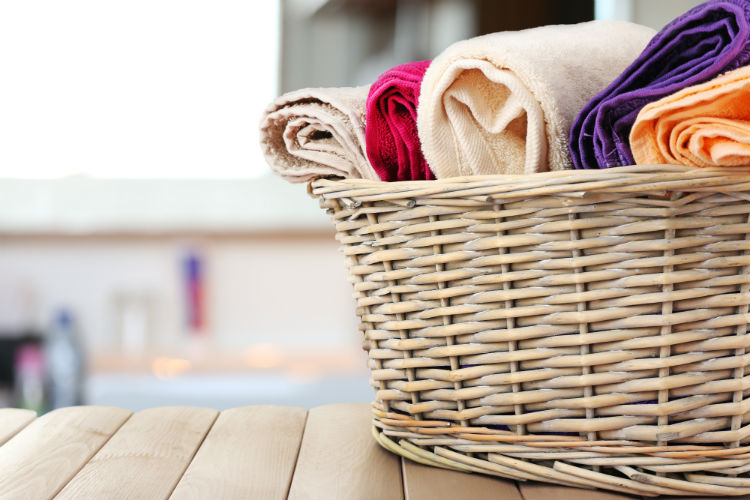A senior's refusal to bathe is a common source of frustration for countless caregivers. Experienced family caregivers share their best tips and suggestions for persuading an aging loved one to take a shower or bath.
6 Tips to Encourage a Senior to Bathe
Encourage getting clean for an activity or event.
“For a period of time, we could only get Dad to shower if he was getting ready for church. My dad never showered in the mornings, so two or three times a week we would just tell him that church was the next day. Most of the time that would work. If there is an activity your loved one participates in that they will always (or almost always) shower for, try to use that to your advantage.” –Groundhog
“One idea we tried (and it worked) was to discuss going out to lunch/dinner. Dad would like the idea very much, but if he wanted to join us, he had to groom himself and bathe. So, about once a week we would treat him to a meal at a diner, IHOP or another local restaurant. It doesn’t have to be very expensive, and the change of scenery was nice for all of us.” –mollydolly332Wash up together.
“If you’re caring for your spouse, try showering with them. Coax them in and help them bathe, if needed. Use bathing items and products they like, such as favorite brands or scents.” –NavLady
“My husband doesn’t want to bathe, but I shave him and wash his face, which he likes. If I can get him in the shower once a week, I feel good. He says he isn’t doing anything to get dirty. I entice him by saying he hasn’t bathed in over a week. I get him to take the shower in the morning before he can get his clothes on. I also suggest that we take a shower together, and he likes that. He can wash himself and I do his back and put shampoo on his hair. Being in the shower also means I can make sure he doesn’t fall or burn himself with the water. He is always happy afterwards and usually rests, as it is exhausting for him.” –Isabella1Give simple, step by step instructions.
“I direct my mom to the bathroom and stand in the doorway so she cannot ‘escape.’ I ask her to take her ‘night pants’ off and put them in the trash, and then I ask her to take her nightie off and hand it to me. I ask her to get in the walk-in handicapped shower. Sometimes she will go right in, but other times she won’t. I stand at the doorway and tell her we need to freshen up so we can have breakfast, go outside, see our friends, or anything else that might interest her. I have stayed at the door for up to 25 minutes before! Patience is required since the language center of her brain is not working well and she has difficulty comprehending things. We get it done first thing in the morning, because she is easier to encourage then.” –sonshineacresHire bathing assistance for elderly loved ones.
“The solution for us was to get in-home care. The very first time a bath aide came in, she had Mom all cleaned up (including dentures, which I was not successful getting her to clean) and wearing fresh clothing only an hour after they were introduced. It may not happen that quickly or smoothly for some, but a properly trained professional caregiver will usually be successful where family members are not.” –dejavuagain
“Call the doctor and get an order for a bath aide to come to your house several times a week. This is what I did when my dad stopped bathing.” –EyerishlassUse a therapeutic fib.
“When it came to bathing, I would just tell Mom that I needed her to take a bath when I was there to make sure she was clean. Even if she insisted she had already bathed, I would tell her that in order for me to get the government assistance that we were receiving, I had to be sure she was bathing and she had to do it again so that I could be honest with them. Sometimes white lies are necessary.” –neveraloneRelax your hygiene standards.
“My mother-in-law, who has since passed at age 84, only took sponge baths for the 17 years I knew her. She was not excessively dirty or smelly. Although I thought her approach was not enough, it’s actually better for you to not shower on a daily basis. My father-in-law with Alzheimer’s takes an assisted full shower twice a week and that seems to work okay for him. He’s not out running marathons, and we wet wipe his privates in between to avoid rashes and odors. I think you just have to do what’s best in each circumstance. Let go of preconceived notions of cleanliness and unrealistic expectations and focus on doing what’s best for your loved one.” –Heidigreene
The AgingCare Caregiver Forum is filled with people coming together to share advice, valuable information and words of support. Is there another solution that has worked for you? Let fellow caregivers know what elderly hygiene tips have helped your family by leaving a comment below.
Find Trusted Home Care in Your Area!
Get connected to quality care near you.
